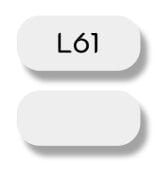Uses
Colesevelam is used in adults along with diet, weight loss, and exercise to reduce the amount of cholesterol and certain fatty substances in the blood alone or in combination with other cholesterol-lowering medications known as HMG-CoA reductase inhibitors (statins). Colesevelam is also used alone or in combination with HMG-CoA reductase inhibitors in certain boys and in girls, ages 10 to 17, with familial heterozygous hypercholesterolemia (an inherited condition in which cholesterol cannot be removed from the body normally) to decrease the amount of cholesterol and other fatty substances in the blood. Colesevelam is also used along with diet and exercise to control blood sugar levels in adults with type 2 diabetes (condition in which the body does not use insulin normally and therefore cannot control the amount of sugar in the blood). Colesevelam is in a class of medications called bile acid sequestrants. It works by binding bile acids in your intestines to form a product that is removed from the body.
Bile acids are made when cholesterol is broken down in your body. Removing these bile acids helps to lower your blood cholesterol. Accumulation of cholesterol and fats along the walls of your arteries (a process known as atherosclerosis) decreases blood flow and, therefore, the oxygen supply to your heart, brain, and other parts of your body. Lowering your blood level of cholesterol and fats may help prevent heart disease, angina (chest pain), strokes, and heart attacks.
Side Effects Of Colesevelam
Side effects from colesevelam can occur. Tell your doctor if any of these symptoms are severe or do not go away:
- gas
- constipation
- nausea
- vomiting
- diarrhea
- heartburn
- stomach or back pain
- headache
- weakness
- muscle pain
Some side effects can be serious. If you experience any of these symptoms, call your doctor immediately:
- severe abdominal pain with or without nausea and vomiting
- Colesevelam may cause other side effects. Call your doctor if you have any unusual problems while taking this medication.
Warnings & Precautions
Before taking colesevelam:
- tell your doctor and pharmacist if you are allergic to colesevelam or any other medications.
- tell your doctor and pharmacist what other prescription and nonprescription medications, vitamins, nutritional supplements, and herbal products you are taking or plan to take. Be sure to mention the following: anticoagulants such as warfarin and metformin extended-release (Glucophage XR, Glumetaza).
- if you are taking cyclosporine (Gengraf, Neoral, Sandimmune),, glipizide (Glucotrol), glimepride (Amaryl), glyburide (Diabeta), levothyroxine (Synthroid), olmesartan (Benicar), oral contraceptives (birth control pills), phenytoin (Dilantin), or vitamins, take them at least 4 hours before colesevelam.
- tell your doctor if you have or have ever had a blockage in your stomach or intestines, high levels of triglycerides (fatty substance) in the blood, or swelling of the pancreas caused by high levels of triglycerides in the blood. Your doctor will probably tell you not to take colesevelam.
- tell your doctor if you have had gastrointestinal surgery, and if you have or have ever had any problem with the ability to digest or absorb nutrients from food, any type of stomach problems such as slow stomach emptying, or difficulty swallowing.
- tell your doctor if you are pregnant, plan to become pregnant, or are breast-feeding. If you become pregnant while taking colesevelam, call your doctor.
- if you have phenylketonuria (PKU, an inherited condition in which a special diet must be followed to prevent mental retardation), you should know that the powder for oral suspension contains aspartame that forms phenylalanine.
Dosage Of Colesevelam
Colesevelam comes as a tablet, in a chewable bar, and as a powder to be mixed with a liquid to take by mouth. The tablets are usually taken once or twice a day with meals and a beverage. The chewable bars and the powder are usually taken once a day with a meal. Follow the directions on your prescription label carefully, and ask your doctor or pharmacist to explain any part you do not understand. Take colesevelam exactly as directed. Do not take more or less of it or take it more often than prescribed by your doctor.
If you are taking the powder for oral suspension, empty the entire contents of 1 packet into a glass. Add 8 ounces of water, fruit juice, or a diet soft drink. Stir well and drink the entire contents of the glass. It is normal for the contents to appear cloudy and not fully dissolve. Do not take the powder in its dry form.
If you are taking the chewable bars, you should know that the chewable bars contain 80 calories per bar.
Colesevelam controls your condition but does not cure it. Continue to take colesevelam even if you feel well. Do not stop taking colesevelam without talking to your doctor.
Other
Keep all appointments with your doctor and the laboratory. Your doctor will order certain lab tests before and during your treatment to check your response to colesevelam.
Do not let anyone else take your medication. Ask your pharmacist any questions you have about refilling your prescription.
It is important for you to keep a written list of all of the prescription and nonprescription (over-the-counter) medicines you are taking, as well as any products such as vitamins, minerals, or other dietary supplements. You should bring this list with you each time you visit a doctor or if you are admitted to a hospital. It is also important information to carry with you in case of emergencies.
Source
All information has been provided courtesy of MedLinePlus from the National Library of Medicine and from the FDA.



